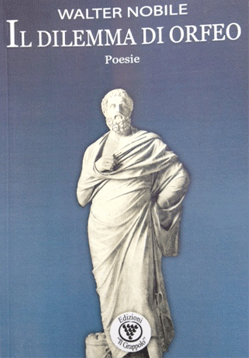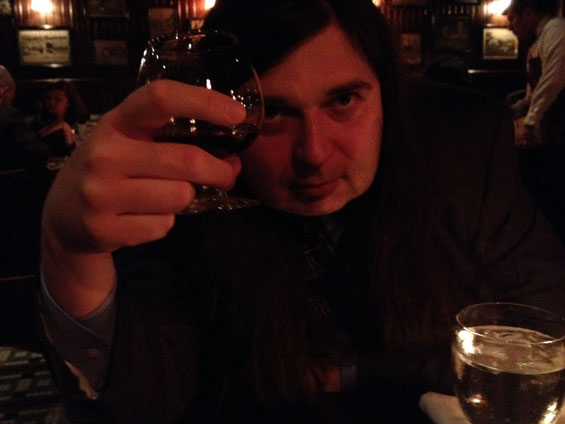Alex Ross’s next book, “Wagner–Art in the Shadow of Music” is still very much a work in progress but his keynote lecture at Wagner WorldWide 2013 at the University of South Carolina (now up on YouTube) demonstrates that he is on the trail of some fascinating, and little known, aspects of his subject’s world.
Here’s something cool to mark on your calendar. The Ojai Music Festival is launching a free three-week online course next Wednesday, May 15, leading up to the 2013 Festival which runs June 6-9. The courses are designed to help audiences “listen smarter” and enable them to gain deeper insight into the music and programming that have made Ojai–now in its 67th year–one of America’s most durable and loved summer music festivals. (FYI, this year’s Festival focuses mainly on the music of Lou Harrison, Terry Riley, John Cage and John Luther Adams).
The OjaiU courses are led by Douglas McLennan, editor and founder of ArtsJournal.com and feature guest instructors including Festival Artistic Director Thomas W. Morris and 2013 Music Director Mark Morris. Other instructors are composer John Luther Adams, pianist Jeremy Denk, dean of the Juilliard School Ara Guzelimian, music and dance critic John Rockwell, filmmaker Eva Soltes, and Los Angeles Times classical music critic Mark Swed.
Here’s a teaser:
You can sign up here.
We’re looking for a WordPress genius to help us update Sequenza21 by cleaning out the crawl space and attic, adding some new wiring and plumbing, attaching the garage to the main house, making the family room a more fun place to hang out and talk and to bring in a new Wolf oven and SubZero fridge. Ok, my recent conversion to home mortageship has addled my brain a bit. What we want to do is make S21 more social and interactive, clean out the spam and cut down the archives, combine what is now four separate WP instances (main, forum, CD reviews, and calendar) into one unified whole, maybe reskin add a web commerce capability. We can pay you something for the initial work and a modest retainer for being on call. Also, we’ll give you masthead credit and promote the hell out of your next concert or CD. Send a us a note if you’re interested.
 Who wants a pair of tickets to coLABoratory: Playing It UNsafe at Zankel Hall on Friday night? This is an ACO project described as the first and only professional research and development lab to support the creation of cutting-edge new American orchestral music through no-holds-barred experimentation. The composers participating in coLABoratory this season are selected from a national search for their willingness to experiment and stretch their own musical sensibilities, and their ability to test the limits of the orchestra. More info here.
Who wants a pair of tickets to coLABoratory: Playing It UNsafe at Zankel Hall on Friday night? This is an ACO project described as the first and only professional research and development lab to support the creation of cutting-edge new American orchestral music through no-holds-barred experimentation. The composers participating in coLABoratory this season are selected from a national search for their willingness to experiment and stretch their own musical sensibilities, and their ability to test the limits of the orchestra. More info here.
If you’ve already liked our Facebook page, leave your name and a contact e-mail here before noon on Thursday. If you haven’t liked the Sequenza21 page, leave you name over there. If you’re from out of town, you can give me to local friends if you like. On Thursday afternoon, my trusty dog and I will choose a winner.
The world has reached a sad state when our individual and institutional worth is measured by how many people like us on a social media web site. But, alas, these are modern times and in the spirit of getting with the program, we have created a Sequenza 21 Facebook page where we are cheerfully posting and reposting daily the new music community’s responses to the relevant news and happenings of the day. You might say that making Mark Zuckerberg richer and more devious on the slippery slope of privacy rights has become a passion of ours. If they can now x-ray your privates as you pass through airport security, what else do we have to lose?
But I digress. Right now on the Sequenza21 page, you’ll find many of the obits, tributes, and reflections on the passing of Dave Brubeck and Jonathan Harvey, as well as samples of works completed and started, favorite YouTube videos, and the usual bitches and moans about the sorry state of the classical music business. We’d love to have you join us. We might even report your latest concert or CD announcement. Come on over.
And don’t forget to hit the “Like” button.
At an early point in Yaron Zilberman’s new film A Late Quartet, Peter Mitchell (Christopher Walken) the cellist and father figure of a world renowned string quartet, explains Beethoven’s Opus 131 to his students: “It has seven movements and they’re all connected. For us, it means playing without pause; no resting, no tuning. Our instruments must, in time, go out of tune–each in its own quite different way. Was he trying to point some cohesion, some unity, between random acts of life? What are we supposed to do? Stop? Or struggle to continuously adjust to each other until the end?”
It is an apt metaphor for the four musical souls at the heart of this intriguing little film which tries–not always successfully–to balance fidelity to the lives and behavior of real-life, successful classical musicians with the demands of a story that aims to attract a larger audience of people who won’t much care if the actors are holding their instruments correctly or not. The result is a plot that won’t really please musicians or civilians completely and is a bit more melodrama than drama.
While the quartet is preparing to launch its 25th season, the Peter Mitchell character (Walken, playing brilliantly against type) discovers that he has early stage Parkinson’s. He knows his playing days are soon over but he wants to play the first concert of the new season as his farewell and he also wants to pick his successor. As the other members absorb the devastating news, it quickly become clear that Mitchell has been the adult who held the quartet together and all of the simmering rivalries and perceived slights of the other players come rushing to the surface. Robert Gelbart (Philip Seymour Hoffman, second violin) and Juliette Gelbart (Catherine Kenner, viola) are not so happily married–or, at least, she isn’t. She’s still not sure she shouldn’t have married the first violinist Daniel (Mark Ivanir) when they were dating in the early days of the quartet. Robert is also tired of playing second fiddle and wants to rotate the first chair. Daniel is a perfectionist and a pain-in-the-ass. Throw in a subplot about Robert and Juliette’s daughter, Alexandra (Imogen Poots) being a promising young violinist who gets involved with first violinist (We won’t mention the mother-daughter thing here), Robert having a one-night stand with a Latin beauty he runs with in the park, and the ghost of Peter’s wife, Miriam (Anne Sophie von Otter) showing up in his bedroom and singing him to sleep and you can see that maybe there is a little too much extra-musical stuff going on.
What makes the film work as well as it does is solid performances by everyone. Philip Seymour Hoffman is his usual commanding self. Catherine Keener is one of the most underrated actresses working. Ivanir is solid and Christopher Walken, miraculously, comes across as a sweet, gentle man that you’d like to take cello lessons from. This is the kind of film that doesn’t get made that often, about a subject that we all care about. It offers a modestly faithful look into the world of classical music and musicians. It may get a little out of tune along the way but the players deserve our applause for making it to the end.
[youtube]http://www.youtube.com/watch?v=NX66lRnNmqs[/youtube]
 Should you find yourself in the vicinity of Potsdam, NY on Tuesday night of this week, I highly recommend to you a concert of four recent works by Crane composer David Heinick, which will be performed by members of the Crane School of Music faculty, beginning at 7:30 p.m. in the Sara M. Snell Music Theater on the SUNY Potsdam campus. Alas, I don’t know Professor Heinick or his music (although I’d like to) but I do know the librettist of one of the three world premieres on the program.
Should you find yourself in the vicinity of Potsdam, NY on Tuesday night of this week, I highly recommend to you a concert of four recent works by Crane composer David Heinick, which will be performed by members of the Crane School of Music faculty, beginning at 7:30 p.m. in the Sara M. Snell Music Theater on the SUNY Potsdam campus. Alas, I don’t know Professor Heinick or his music (although I’d like to) but I do know the librettist of one of the three world premieres on the program.
“Chiaroscuro,” a setting of four poems from il Dilemma of Orfeo, by poet/artist/classical scholar/master chef/carpenter and barn raiser Walter Nobile, will be performed by soprano Jill Pearon and mezzo-soprano Lorraine Yaros Sullivan, with Heinick at the piano. Walter (and his wife Marilyn) are among my oldest and dearest friends.
Walter was born to Italian parents in Tripoli, Libya and studied the classics in Libya and Italy. After two years in Madrid, he moved to the United States, where he taught Italian language and literature at the Universities of California (Berkeley), Oregon, and Chicago. Since 2004 he has divided his time between Cecina, Italy, and Potsdam. He is currently working on a new translation of Dante’s “Divine Comedy,” seeking to preserve in English the musicality of the original. I might add that he has almost totally rebuilt his house in Potsdam over the past few years and spent the past summer resurrecting an old barn that most people would have regarded as a “goner” with the help of a couple of Amish lads. Not bad for a man who is pushing the Big 8-0.
Dr. Heinick joined the faculty of the Crane School of Music in 1989. Previously, he taught at St. Mary’s College of Maryland and the University of Maryland-Eastern Shore. He holds degrees from the Eastman School of Music and the Catholic University of America and is the composer of over fifty works for a variety of instrumental and vocal media, ranging from unaccompanied flute to chorus and symphony orchestra. His music is published by SeeSaw Music, Dorn Publications, Nichols Music, and Kendor Music; it has been performed throughout the United States, and broadcast on National Public Radio and the CBC.
David T. Little is stepping down as MATA executive director this fall to focus more fully on his compositional life and to pursue other professional endeavors. MATA is looking for a new ED. Says David: “It can be a really rewarding position, with excellent colleagues, and can provide a one of a kind opportunity for a composer or performer to really learn the ins and outs of arts administration, while still being very connected to composition and new music, or for an arts administrator with a passion for new music and love of composers.”
The position application deadline is August 1, 2012 and the start date is September 15, followed by a month-long training process. The new ED will officially take over duties in full on October 17th, 2012.
If you’re interested in applying, the details are all here.
Spotted at Keen’s Steakhouse: New Music evangelist and all-round wild-and-crazy guy Frank J. Oteri hovering with music industry macher Marc Ostrow. Is there a game-changing new website where classical, jazz and theatrical composers can easily publish and promote their work in the works? Can you spell ScoreStreet, boys and girls?
Frank wrote two massive pieces recently that you should read if you haven’t already. One is a 8,000 word essay on Beach Boy founder Brian Wilson’s Smile and the other is on John Cage.
That’s frank, brother.
Hilary Hahn has a really cool new album called Silfra out today. Recorded in Iceland with the Düsseldorf-based composer and pianist Volker Bertelmann, who goes by the name Hauschka, the album’s producer is Valgeir Sigurðsson, who normally works with people like Björk and Feist.
The big surprise is that when Hahn and Hauschka entered the studio for their 10-day session, they hadn’t prepared a note. Almost all of Silfra is the product of improvisation. If you hurry, you can listen to it free today at NPR.
Hahn and Hauschka recently interviewed each other about the project. Here’s part 1:
